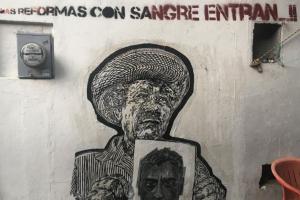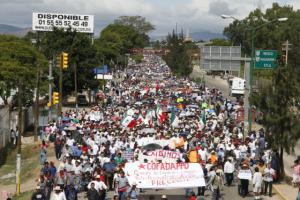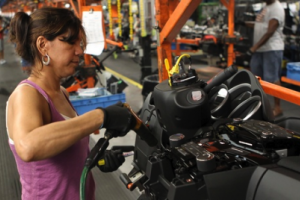Mexico's Classroom Wars
Jacobin
 Striking Mexican teachers are fighting for justice in the classroom - and against Mexico's violent neoliberal order. The violent repression of striking teachers in 2006, ordered by the state governor, launched a social movement - called the "Oaxaca Commune" by supporters - that grew to encompass much more than the local teachers' union. The teacher's movement is also more widespread than in 2006.
Striking Mexican teachers are fighting for justice in the classroom - and against Mexico's violent neoliberal order. The violent repression of striking teachers in 2006, ordered by the state governor, launched a social movement - called the "Oaxaca Commune" by supporters - that grew to encompass much more than the local teachers' union. The teacher's movement is also more widespread than in 2006.









Spread the word